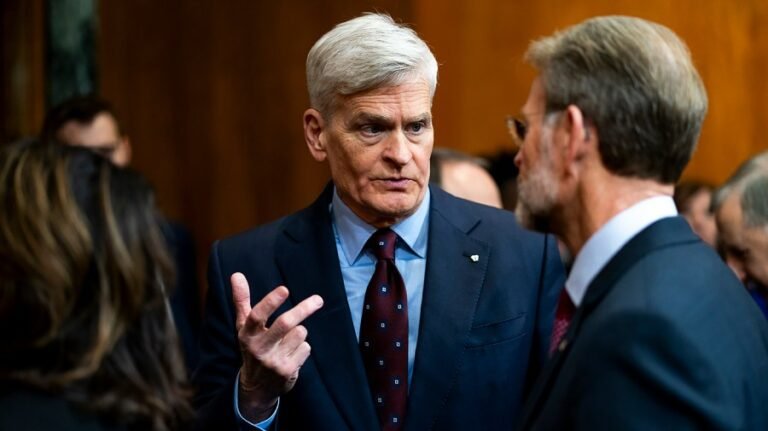
The supremely partisan Supreme Court is deeply divided. The justices pretend that their divisions are intellectual, not personal, but we know that their deep ideological divisions can often disguise personal animus.
In 1916, President Woodrow Wilson appointed Louis D. Brandeis to the Supreme Court, making him the first Jewish justice. Brandeis had no prior judicial experience but was known as the “people’s lawyer” for his championing of individual liberties — a right to privacy, free speech and social justice. The Economist once called him “a Robin Hood of the law.”
Leading lawyers and elected officials opposed the Brandeis nomination. The American Bar Association and such luminaries as former President William Howard Taft, Elihu Root and Henry Cabot Lodge lined up against him. Brandeis ascended to the conservative Supreme Court after a four-month Senate confirmation hearing — the first time such a hearing was held.
After he took the bench, his colleague, Justice James McReynolds of Tennessee, a hardened antisemite, would turn his back and refuse to speak with Brandeis as he entered the conference room.
Brandeis needed time to find his place. “So extraordinary an intellect as Brandeis said it took him four or five years to feel that he understood the jurisprudential problems of the court,” Justice Felix Frankfurter later wrote of him.
Brandeis often crafted trenchant dissenting opinions, some of which later became the basis for landmark judgments of the court’s majority. In many of his famous dissents, he was joined by the iconic Justice Oliver Wendell Holmes. His opinions were some of the greatest legal defenses of free speech and the right to privacy ever written.
Unlike Brandeis, Justice Ketanji Brown Jackson, appointed by Biden in 2022, has not waited “four or five years” to become “a Robin Hood of the law.” But the parallels with Brandeis are striking.
Jackson is the first Black woman to serve on the court and, like Brandeis, she has become the great dissenter, sometimes siding with Justices Sonia Sotomayor or Elena Kagan and sometimes standing alone. Jackson has erupted volcanically, writing eloquently to speak her heart and mind in advocacy for human rights or against the steady accretion of executive power.
And she has not been shy about accusing her right-wing colleagues of enabling President Trump as he slip-slides the country towards a dangerous autocracy. Also, like Brandeis, she has been the target of personal attacks coming from conservatives on and off the bench.
On the Supreme Court’s “shadow docket,” where Trump this term won 19 of the 21 cases the court considered, Jackson dissented. In strong language, she criticized the majority opinion in the birthright citizenship case, which sharply limited the power of district court judges to block presidential orders nationwide, even if they are flagrantly unconstitutional. She called it “an existential threat to the rule of law” that created “a zone of lawlessness within which the executive has the prerogative to take or leave the law as it wishes.”
Her slashing critiques have provoked her colleagues’ rancor, culminating in gratuitous rebuke from Justice Amy Coney Barrett, which did not lack dismissiveness or condescension. Barrett scolded Jackson as though she were an eight-year-old schoolgirl in a classroom for abandoning her “oath to follow the law.”
“Justice Jackson would do well to heed her own admonition,” she chided. “‘Everyone from the president on down is bound by law.’ That goes for judges too.”
Justice Barrett added: “Justice Jackson decries an imperial Executive while embracing an imperial Judiciary.”
And: “We will not dwell on Justice Jackson’s argument, which is at odds with more than two centuries’ worth of precedent, not to mention the Constitution itself.”
In the staid world of the federal judiciary, it doesn’t get any closer or more personal than this.
Trump’s supporters were delighted by Barrett’s criticism of Jackson. “Sometimes feeling the heat helps people see the light,” Mike Davis, a right-wing legal activist allied with the Trump administration, told NBC News.
Duke law professor Marin K. Levy said Jackson “is trying to raise the alarm. Whether she is writing for the public or a future court, she is making a larger point about what she sees as not just the errors of the majority’s position but the dangers of it as well.”
Perhaps one day Jackson’s views, like those of Brandeis, will become the law.
Jackson has also been critical of the Supreme Court’s use of the shadow docket — an increasingly expedient procedural device for the justices to deliver bargain-basement endorsements of Trump’s agenda without explanation or legal rhyme or reason.
“This fly-by-night approach to the work of the Supreme Court is not only misguided,” Jackson wrote. “It is also dangerous.”
Last week, the court handed down a significant (if temporary) decision allowing Trump to move forward with firing thousands of federal workers. Jackson registered a solo dissent, writing, “In my view, this decision is not only truly unfortunate but also hubristic and senseless.”
What Jackson criticizes has consequences in the real world. The court’s repeated interventions in favor of Trump enable obvious illegality by the executive branch for a while, or possibly forever, as Trump continues to game the system. That it is only temporary is no answer. Over one million individuals may be losing their previous immigration status; countless migrants are being removed to third countries; federal employees are being fired wholesale, without congressional approval; statutorily created agencies are being downsized into insignificance; grants for scientific research have been throttled. And just wait for what will happen to law firms and universities.
Jackson may not be “so extraordinary an intellect as Brandeis,” but she is surely as principled. And like Brandeis, she is reviled on the right as Cassius was reviled by Julius Caesar: “He thinks too much; such men are dangerous.”
James D. Zirin, author and legal analyst, is a former federal prosecutor in New York’s Southern District. He is also the host of the public television talk show and podcast Conversations with Jim Zirin.


